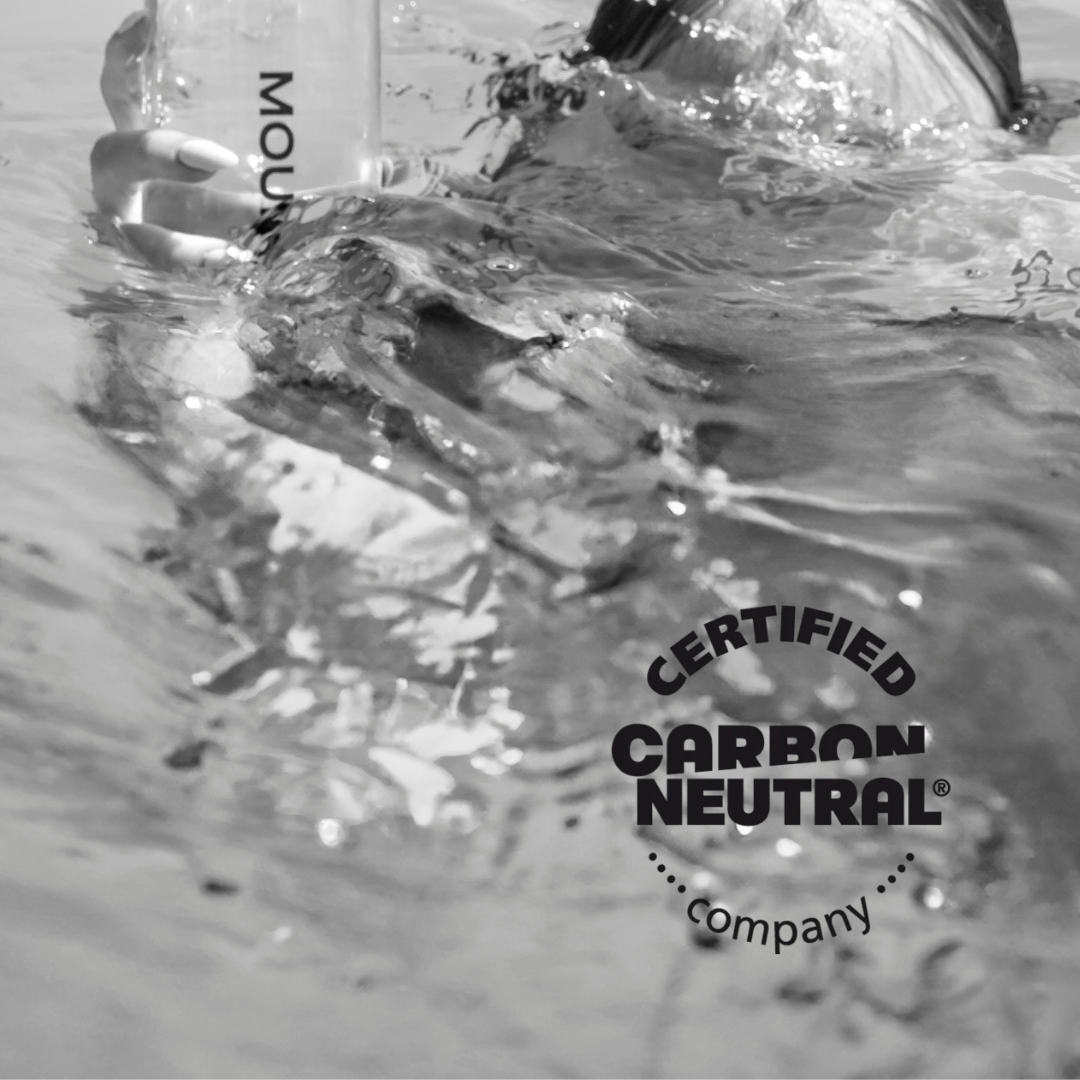Key Takeaways
-
Mineral water taste varies due to factors like mineral composition, geographical source, and natural filtration processes.
-
Key minerals such as calcium, magnesium, and potassium significantly influence flavour, texture, and mouthfeel.
-
Geology shapes the water's taste: limestone regions produce smoother profiles, while volcanic areas impart a crisper texture.
-
Carbonation and temperature also impact taste perception, with sparkling water enhancing mineral notes.
-
Conducting a taste test can help you appreciate the unique flavour profiles of different mineral water brands, such as Mountain Falls in South Africa.
-
Choosing the best mineral water involves considering mineral content, source, and personal preferences for still or sparkling varieties.
When it comes to mineral water, you might wonder if all bottles taste the same or if there’s truly a difference. In South Africa, with its diverse selection of natural spring and mineral waters, the question becomes even more intriguing. From the crisp, untouched sources of the Western Cape to the mineral-rich waters of the Drakensberg, each brand claims something unique. But can your taste buds really tell?
Mineral water isn’t just water; it’s shaped by the land it flows through, absorbing minerals like calcium, magnesium and potassium along the way. These subtle differences influence not only the taste but also the texture and mouthfeel. Whether you’re sipping on a glass of sparkling or still, you may notice a distinct flavour profile that sets one brand apart from another. So, is it all in the marketing, or can you really taste the difference? Let’s explore.
What Makes Mineral Water Unique?
Mineral water stands apart due to its natural mineral composition, which directly influences its taste and character. Sourced from underground springs or natural reserves, it absorbs minerals like calcium, magnesium, and potassium from the surrounding rocks. These elements not only shape the flavour profile but also offer potential health benefits.
The geographical location of the source plays a significant role in defining the water’s taste. South Africa, known for its diverse geology, produces mineral waters with unique mineral balances. For example, water sourced from regions with high limestone content tends to have a smoother mouthfeel, whereas volcanic regions impart a distinct, crisp texture. This variability explains why the mineral water taste differs between brands and their sources.
The interaction of mineral content with your taste receptors also adds to the complexity. Higher magnesium levels can lend a slightly bitter finish, while calcium-rich water feels softer on the palate. This distinction becomes clear during a mineral water taste test, where subtle differences in mineral concentration become more noticeable.
South African brands like Mountain Falls exemplify how natural filtration through rock layers enhances purity while preserving essential minerals. Their balanced mineral composition underscores why water does indeed have a taste. Such qualities make certain brands contenders for the best tasting mineral water in the region.
Factors That Affect the Taste of Mineral Water

The taste of mineral water depends on its mineral composition, which varies based on geological sources. In South Africa, mineral waters such as Mountain Falls reflect the diverse landscapes, offering unique flavour profiles influenced by these factors.
Mineral Content
Distinct minerals in water, like calcium, magnesium, and potassium, impact its flavour and texture. High calcium levels create a smooth and soft feeling, while magnesium adds a mildly bitter note. Sodium presence can give it a slightly salty taste. For example, Mountain Falls mineral water’s natural mineral balance results in a crisp and refreshing flavour.
Geographical Source
The geographical origin shapes the water's taste by influencing its mineral absorption. Water sourced from volcanic regions has a sharper, more distinct flavour, whereas limestone-rich areas produce softer, smoother profiles. South Africa’s varied geology allows for a range of natural spring waters, each with unique tasting notes.
Natural Filtration
Filtration processes through rocks and soils purify the water and add character. Mountain Falls’ source ensures natural filtration that preserves essential minerals while eliminating impurities, enhancing the water’s taste while maintaining purity.
CO2 Levels
Carbonation in sparkling mineral water adds a tangy sensation. CO2 levels can alter the perceived taste by enhancing the mineral flavour or creating a refreshing sharpness.
Temperature
The temperature affects how you perceive flavours. Chilled water often masks subtle mineral notes, while room-temperature water allows tasting nuances, revealing the depth of the mineral composition.
By understanding these factors, you’ll appreciate why mineral water tastes different and how the best tasting mineral waters, like Mountain Falls in South Africa, achieve unique flavour profiles.
Can People Really Taste the Difference?
Studies and consumer experiences suggest that you can detect differences in the taste of various mineral waters. These distinctions arise from the unique mineral composition, natural filtration, and source geology. In South Africa, where brands like Mountain Falls offer water sourced from pristine environments, the nuanced flavours are particularly evident.
A mineral water taste test often reveals how components like magnesium and calcium provide distinct flavour notes. For example, water with high magnesium content can taste slightly bitter, while calcium-rich water feels smooth and soft. The interplay between mineral content and taste receptors creates a complex sensory profile, proving that mineral waters are not as tasteless as many assume. When compared, even subtle shifts in taste can be noticeable to seasoned palettes.
Carbonation also influences perception, as sparkling waters amplify certain mineral-driven flavours while altering the mouthfeel. Temperature affects sensory sensitivity; colder water can mute flavours, while room-temperature water highlights its mineral nuances. During South African summers, chilled mineral water might offer a refreshing experience, but its full tasting profile becomes clearer at moderate temperatures.
Geographical differences play a major role. Mountain Falls water, for example, benefits from natural filtration through rock formations, preserving a balanced mineral profile while maintaining purity. Such processes contribute to why mineral water tastes different, especially when compared to water from volcanic or limestone-rich regions.
Given the variety of South African brands and sources, organising your own mineral water taste test can enhance your understanding of these variations. You might find that one brand, like Mountain Falls, stands out as the best tasting mineral water due to its crisp and clean notes, refined by the natural landscapes of the region.
How to Choose the Best Mineral Water for Your Palate

Consider Mineral Composition
Focus on the mineral levels, as they shape the flavour. Magnesium often adds a mildly bitter note, while calcium creates a smoother texture. South African waters like Mountain Falls contain a balanced mineral profile, offering natural purity without overpowering the taste. Check the label for specifics that align with your preference.
Understand Geographical Source
Choose water based on its origin, as geography enhances its unique characteristics. Waters from limestone-rich areas in South Africa feel smoother, while those from volcanic regions deliver a crisper profile. Mountain Falls, sourced from the Franschhoek Mountains, reflects this regional influence with its clean and refreshing taste.
Evaluate Carbonation
Determine whether still or sparkling water suits your palate. Carbonation can amplify mineral-driven flavours, with sparkling options from brands like Mountain Falls offering subtle effervescence that elevates the drinking experience without overwhelming.
Match Taste to Usage
Align the water’s flavour with its purpose. Mild-tasting waters with balanced minerals work well for everyday hydration, while those with stronger profiles enhance dining experiences. Mountain Falls, with its crisp notes and natural filtration, fits both categories.
Conduct a Mineral Water Taste Test
Sample various South African brands to identify taste differences. Compare unflavoured still and sparkling options from local producers like Mountain Falls. Pay attention to texture, mineral composition, and aftertaste to discover the best tasting mineral water for you.
Exploring the taste of mineral water reveals a fascinating interplay of natural elements that shape its unique character. From mineral composition to geographical origins, each factor contributes to a distinct flavour profile that sets one brand apart from another.
Your personal preferences and palate play a key role in determining which mineral water resonates most with you. By sampling different options and paying attention to texture, carbonation, and aftertaste, you can uncover the subtle differences that make each bottle special.
Whether you're drawn to the smoothness of calcium-rich water or the crisp edge of volcanic sources, the journey to finding your favourite mineral water is both enjoyable and enlightening. Dive into the experience and let your taste buds guide you.
Mountain Falls Mineral Water
Address: Firgrove Industrial Estate, 10 Blend Crescent, Cape Town 7130
Phone: 021 205 1949
Website: mountainfalls.co.za
Email: team@mountainfalls.co.za
Facebook: facebook.com/MountainFallsWater
Instagram: @mountainfallssa
Google Business Profile: View Profile
Discover more from Mountain Falls:
Frequently Asked Questions
What gives mineral water its unique taste?
Mineral water's taste is influenced by its natural mineral content, such as calcium, magnesium, and potassium, absorbed as the water flows through underground rocks. These minerals contribute to specific flavour profiles, altering the texture, aftertaste, and mouthfeel.
Does the geographical source of mineral water affect its flavour?
Yes, the geographical source heavily impacts mineral water's flavour. Water from limestone regions tends to be smoother, while volcanic sources often offer a crisp and refreshing taste due to their unique mineral composition.
Why do some mineral waters taste bitter?
Mineral waters with higher magnesium levels often have a slightly bitter taste. This bitterness is a natural feature of water abundant in specific minerals like magnesium or sulphates.
How does carbonation impact the taste of mineral water?
Carbonation enhances certain flavour notes in mineral water. It can amplify the crispness and texture of the water, making minerals more pronounced, but it may also slightly alter the original taste profile.
Can temperature affect how mineral water tastes?
Yes, temperature plays a role in the flavour experience. Cold mineral water can mute some flavours, while room-temperature water often reveals the full complexity of its mineral composition.
Is South African mineral water good quality?
South African mineral water is considered high quality, with brands like Mountain Falls offering naturally filtered water with a balanced mineral composition derived from pristine spring sources like the Franschhoek Mountains.
How do I choose the best mineral water for my preference?
Consider factors like mineral content, geographical source, and carbonation levels. Sampling different brands and comparing texture, flavour notes, and aftertaste can help you find the one that best suits your palate.
Are the differences in mineral water taste real or just marketing?
The differences are real and stem from variations in mineral content, filtration processes, and geographical origins. Conducting a taste test can help identify these differences, proving that not all bottled waters taste the same.
What health benefits does mineral water offer?
Mineral water with calcium, magnesium, or potassium can support bone health, muscle function, and hydration. However, the health benefits vary based on the specific mineral composition of the water.
Which South African brand offers the best tasting mineral water?
Brands like Mountain Falls are praised for their balanced mineral profile and distinct taste derived from natural filtration through South Africa's Franschhoek Mountains—a popular choice for many local consumers.



